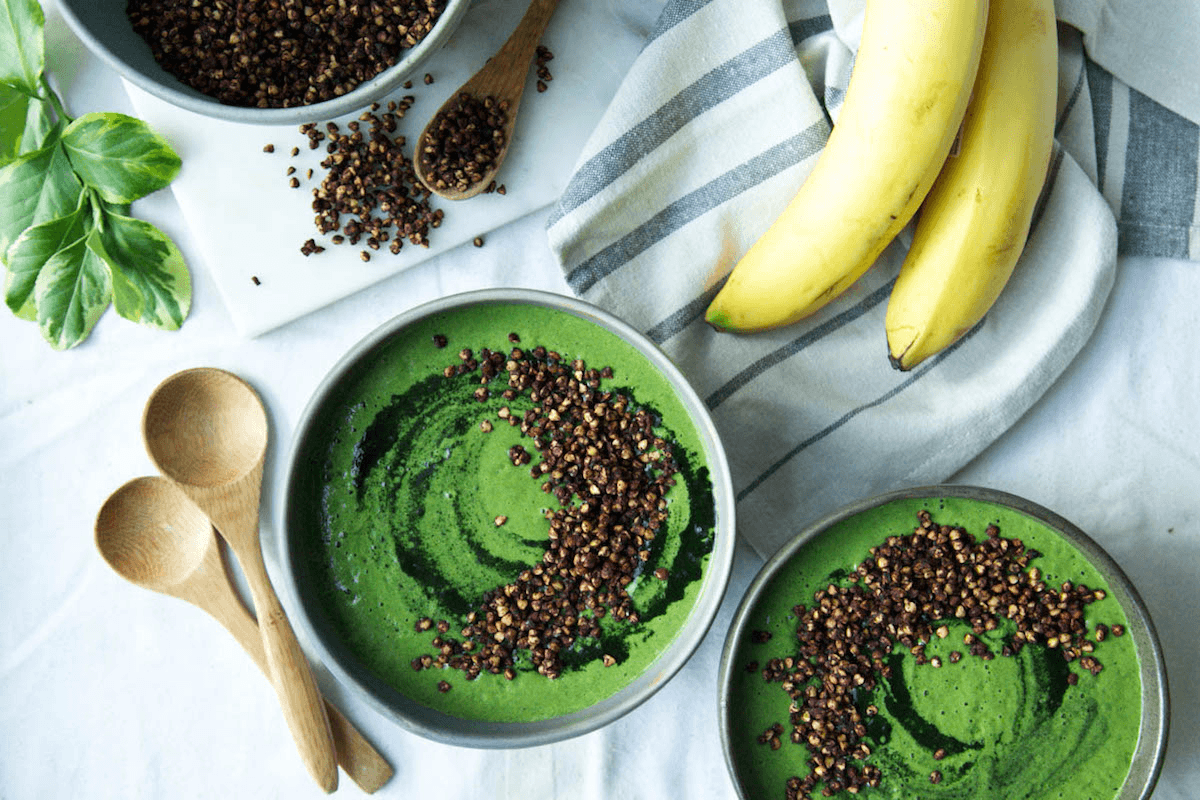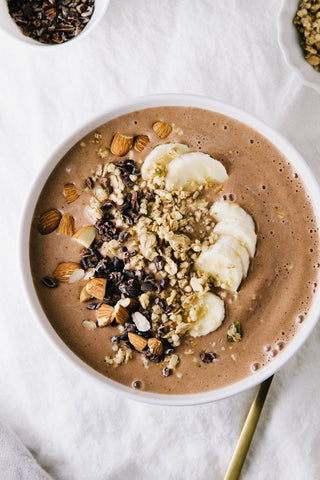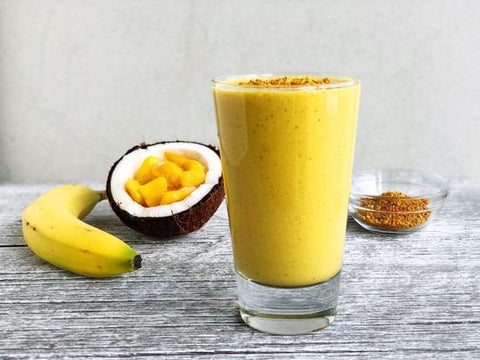
Dear Ruthy, I’ve been hearing a lot of talk about smoothies not being great for digestion, but with my busy schedule I find that they’re such an easy way to make sure I get lots of fruit and vegetables into my diet. Do I really need to stop drinking smoothies?
There is some truth to that, but I’ll break it down a bit and also give you some tips for “tweaking” your smoothie so that it’s more optimally digested!
Digestion is a complex, multistage process that begins in the mouth with digestive enzymes in our saliva and chewing. It not only macerates food but also sends signals further down our digestive tract that kick-start the production of other digestive enzymes. We must remember that smoothies are in fact pureed food and not a 100% liquid beverage. However, since we typically drink (rather than chew) smoothies, what often happens is that enzymes that are crucial for digestion are not produced in time to further break down the smoothie when it reaches our intestines. These undigested substances ferment and feed our gut bacteria, causing gas and bloating and preventing optimal absorption of the smoothie’s nutrients.

(Photo from The Simple Veganista)
One other digestive challenge with smoothies (and anything cold for that matter) is that consuming cold liquid quite literally puts out your digestive fire! Digestion is an energy-intensive process, but when we cool down the body with cold liquids, our thermostat kicks in. In order to maintain optimal body temperature, much of the energy required for digestion is diverted to heating the body. This challenge tends to be most problematic for those of us (myself included) with a vata Ayurvedic dosha.* Cold liquids further aggravate the cold and dry qualities of vata, resulting in imbalances which are manifested in the body by constipation and other digestive challenges. On the other hand, the pitta dosha, which is characterized by warm body temperature and strong digestion, favours cooler foods and beverages to keep the dosha in balance.
But these two smoothie challenges can be overcome, so don’t fret if you’re a smoothie fan! What I love to do to ensure that I get those digestive enzymes going is to “chew” my smoothies. I know it sounds odd at first — how do you chew liquid?! But by mixing a couple teaspoons of something crunchy into your smoothie, you’re forced to chew each sip, thereby properly kick starting that optimal digestive process. Some of my favourite mix-ins are raw cacao nibs and chopped nuts.

(Photo from The Joya Life)
The digestive fire fix will unfortunately be a bit less appealing to some, but if you’ve got sluggish digestion or know that your dosha is vata dominant, it’s a good idea to drink (or chew!) your smoothies closer to room temperature or cool rather than cold. You can control the temperature by using refrigerated or room temperature fruit and vegetables rather than frozen, and not adding ice when blending.
Finally, one last digestion-boosting tip is to incorporate enzyme-rich fruits such as papaya and pineapple into your smoothies. Because who doesn’t want every smoothie experience to feel like sitting on a beach sipping pina coladas?!?

*In Ayurveda, each of the three “doshas” — vata, pitta and kapha — is the manifestation in each person of the five elements found in all living things: ether, air, fire, water, and earth. The manner and proportion in which the three doshas appear in each of us is what makes each of us unique.
(Header image from The Green Life)

Ruth Elnekave is a Toronto-based chef, holistic nutritionist, culinary instructor, recovering corporate lawyer and founder of JOYÀ. Her projects are fuelled by one main goal: to spread the pure joy and wellbeing experienced when sharing and savouring delicious, real food.
